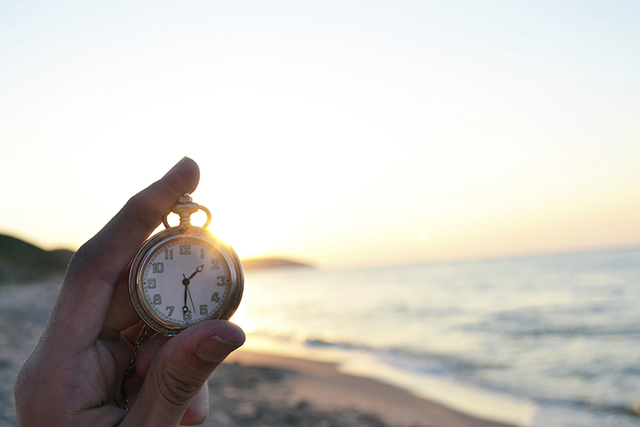Nevada legislators are tired of springing forward too

CARSON CITY — Assemblyman Chris Edwards says his constituents are tired of springing forward and falling back every year.
Especially this Monday when bleary eyed Nevadans are heading to work an hour earlier than last week because of the time change today when clocks moved ahead one hour.
He wants Congress to let Nevada spring forward once more and leave it at that, keeping Nevada on daylight saving time in perpetuity.
At a recent hearing on Assembly Joint Resolution 4, Edwards, R-Las Vegas, and fellow supporter Derek Armstrong, R-Henderson, said the twice-a-year time change no longer serves any purpose.
“The end result that we’re seeking is to have the sun set later during the winter months, as well as not messing up everyone’s schedule twice a year, as it often does,” Edwards said.
The recommendation to stay with Pacific Daylight Time year-round instead of switching back to standard time would provide the extra hour of light in the evening in winter, which most people seem to prefer, he said.
“I was surprised at how many people just hate having to change their clocks and have their schedules messed up,” Edwards said.
The time change twice each year causes a number of problems, from disrupting sleep schedules to contributing to an increase in heart attacks for seniors and more auto accidents when the clocks are first moved forward by an hour each spring, Edwards said. Two documents were included that support the heart attack and accident claims.
The resolution was heard by the Assembly Legislative Operations and Elections Committee late last month. The measure has not yet seen a vote.
Edwards said Congress determined when it enacted a bill creating the Emergency Daylight Saving Time Energy Conservation Act of 1973 that year-round daylight saving time could have beneficial effects, including “expanded economic opportunity through extension of daylight hours to peak hours and through extension of domestic office hours to periods of greater overlap with the European Economic Community.”
But most of all, Edwards said, his constituents are tired of waking up as they will do this Monday, an hour earlier because of the jump forward one hour. Leaving the time permanently unchanged would be the better option, he said.
Congressional action is required to make the change, he said. If a bill was approved, the Legislature could implement the change in the 2017 session, Edwards said.
The measure was supported in written testimony by Elko resident Janine Hansen, who said she suffers from a condition called seasonal affective disorder brought on by the lack of sunlight in winter. Staying on daylight saving time year-round with more light later in the day might help with her condition, she said.
SAD is a mood disorder characterized by depression.
Other states, including Texas and Utah, have considered bills to opt out of daylight saving time although none have passed. But the measures differ in that they seek to permanently maintain standard time and avoid moving to daylight saving time each year.
At the hearing Assemblywoman Victoria Seaman, R-Las Vegas, asked if the change would disrupt Nevada’s business relationship with California.
Armstrong said having Nevada’s time be one hour later in the winter months when California went back to Pacific Standard Time could actually be a benefit. Travelers returning to California from a trip to Las Vegas might actually spend an extra night knowing they would have an extra hour to get home, he said.
Assemblyman James Ohrenschall, D-Las Vegas, said he did not see the hour difference being an issue with visitors from California.
“I do support the measure,” he said. “I’m a parent, and when I get home in the winter it’s dark. So I think if this does pass, it will be good for families and people with kids.”
There also is less use of heating and electric lights and other benefits, Ohrenschall said.
There was no testimony in opposition to the measure from Nevada businesses or anyone else.
In what can be described only as good timing, Gov. Brian Sandoval designated this past Saturday as “Suddenly Sleepy Saturday-A Day for Narcolepsy Awareness.” The day’s purpose is raising awareness of narcolepsy, a chronic neurological sleep disorder that affects one in every 2,000 people in the United States.
As noted in the announcement, “Suddenly Sleepy Saturday is the day before Americans turn their clocks ahead one hour for daylight saving time, a time when even those who do not have narcolepsy may experience sudden sleepiness or daytime drowsiness, just as people with narcolepsy do every day.”
Contact Sean Whaley at swhaley@reviewjournal.com or 775-687-3900. Find him on Twitter: @seanw801.












